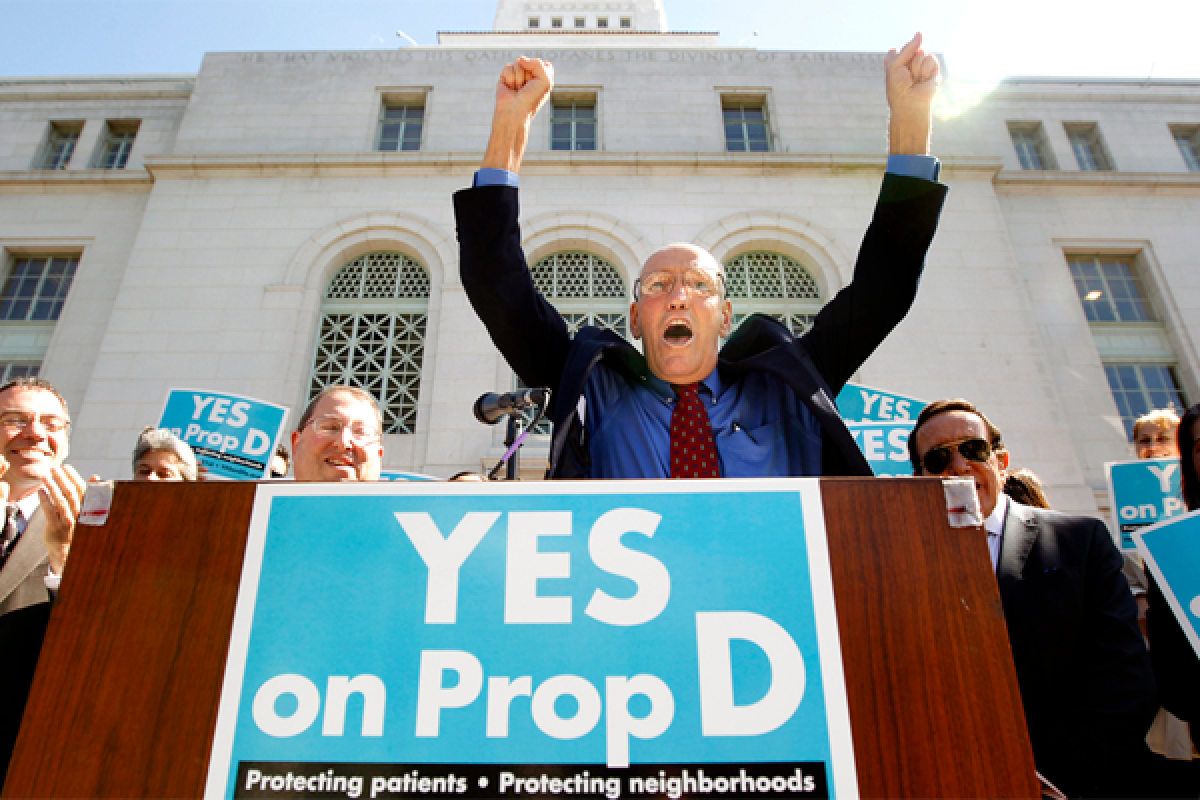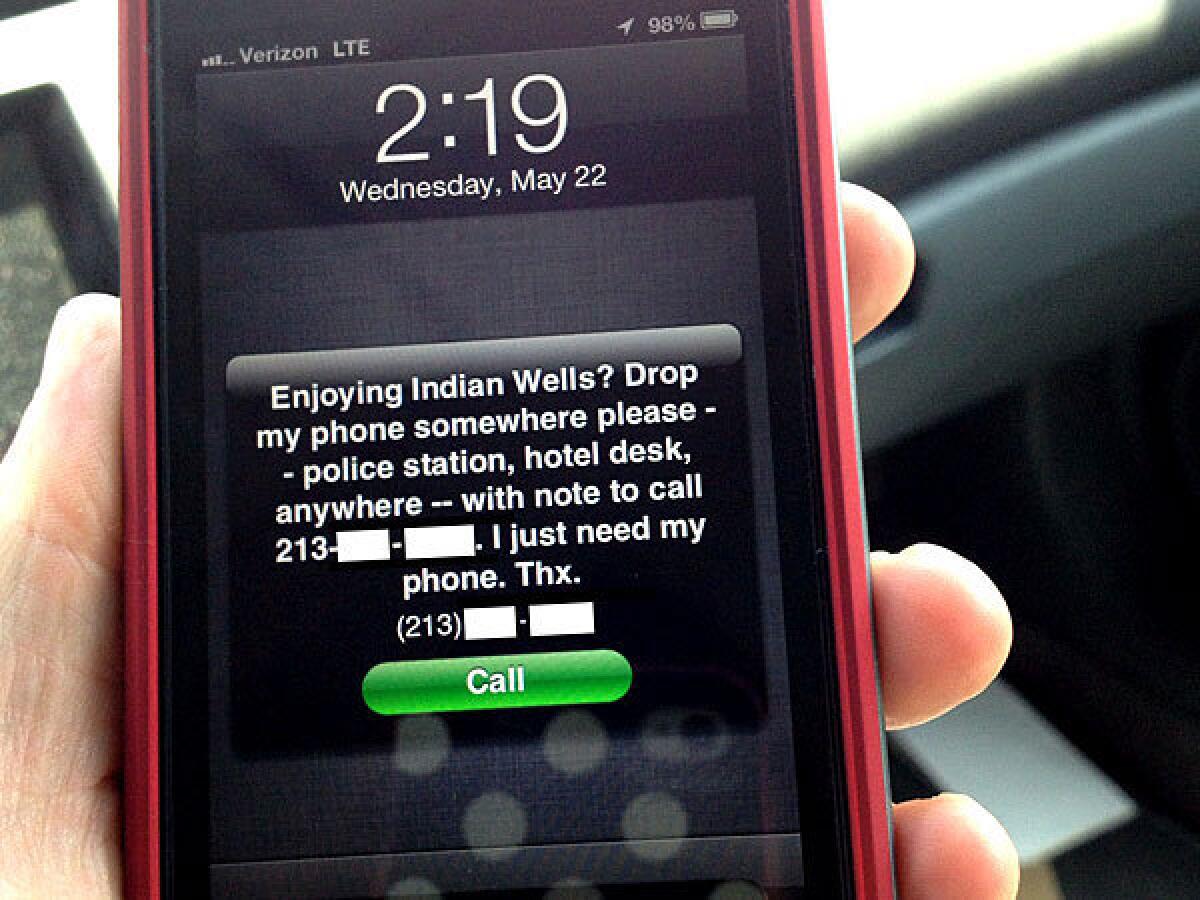Councilman Rosendahl’s colorful life of city service
The L.A. official maintains an oddball, larger-than-life persona focused on helping others. One friend describes his home as a commune; another, a three-ring circus.
- Share via
Behind his house, out back where the hens cluck, a statue of St. Jude stands amid the flowers. It was a 50th birthday gift to Bill Rosendahl from a friend who said he reminded her of the Christian apostle known as the patron saint of lost causes.
For decades, Rosendahl has opened his doors to people who need help. In the 1970s, he let a group of homeless teenagers stay in his Venice Beach apartment, including a young couple who camped in his walk-in closet. Seventeen years ago, he took in an aging street performer, Swami X, who now receives hospice care under Rosendahl's watch.
They're a part of the sprawling bohemian universe that Rosendahl has shaped far away from the buttoned-up world of Los Angeles City Hall, where he has served on the City Council since 2005. He steps down June 30 after two terms representing a wealthy Westside district that stretches from Westchester to Pacific Palisades.
One friend affectionately describes his Mar Vista home as a commune. Another calls it a three-ring circus.
Throughout the day, people stream in: caretakers, constituents, a Reiki healer. Rabbits rustle in the yard. Incense smokes. A phone rings and rings. An indoor flock of finches sings.
Rosendahl holds court from a soft recliner in the living room, the ocean breeze blowing on his shoeless feet, a skinny black cat rubbing against his knees. At 68 years old, he is a bundle of contrasts. He loves politics, which can be transactional, but also Buddha's message of transcendence. He represents some of the city's richest residents, and is friends with many of them, yet he remains firmly anti-materialistic.
"I believe we're just passing through," he says. "By the time you die you should have nothing left."
He tired long ago of trying to live up to conventions. In the 1970s, he came out as gay, and over the years he has maintained an oddball, larger-than-life persona while working prestigious jobs as a White House appointee, cable TV executive and public affairs talk show host.
Rosendahl decided to run for office after leaving the cable industry — he had been told he'd make a good candidate by several guests on his show.
On the council, he earned a reputation as opinionated or blustering, depending on whom you ask. The lifelong Democrat has publicly trashed former President Clinton for not doing enough for gays and has criticized President Obama for not ending all wars overseas.
He is known as a leading advocate for the homeless and, lately, as a top proponent of medical marijuana, which he uses to help manage pain from his cancer.
The diagnosis came one day last July after he collapsed and was rushed to the hospital. A doctor said he had stage four cancer of the ureter, which is a tube that connects the kidney and bladder. She said he might have only months to live.
Bouts of radiation and chemotherapy drained him. He dropped more than 50 pounds from his 6-foot-3 frame and was forced to use a walker. Last fall he announced he would not seek a third term.
A few weeks before his 68th birthday, he disclosed that his cancer was in remission. Maintaining good health is crucial, and means he'll need to accept help from the people around him. That could be a challenge, said Phyllis Masard-Lindner, a longtime friend.
"He's very good at taking care of others," Masard-Lindner said, "but he's not so good at letting people take care of him."

At times, Rosendahl appears the quintessential Californian. He's quick to extol the virtues of organic produce and the Mediterranean climate. New Age catch-phrases like "I don't need the negative energy" and "All we have is the moment" are in heavy rotation.
I think he feels responsible for making the world a better place."— Ed Leek, Rosendahl's friend
But his accent — loud, broad and New Jerseyan — reveals more distant roots.
He grew up in a bustling house in Englewood, N.J., one of eight children born to German Catholic immigrants who fled Europe during Adolf Hitler's rise to power. His father, who started out as a janitor at Wella cosmetics and rose to be president of the company, belonged to the Knights of Columbus. His mother went to Mass every morning and washed the church linens on Fridays.
Rosendahl attended Catholic schools during his childhood and earned a bachelor's degree in political science from a Benedictine college outside of Pittsburgh. Although he draws from Judaism and Eastern religions, the Catholic emphasis on love and charity has always been Rosendahl's bedrock, his friend Ed Leek said.
"I think he feels responsible for making the world a better place," Leek said.
Rosendahl was in graduate school studying social work when he took a leave of absence to organize student volunteers for Robert F. Kennedy's presidential campaign. He was at the Ambassador Hotel in Los Angeles the night Kennedy was assassinated.
"We were upstairs on the floor above, drinking beer and watching it on TV when the shots rang out," he remembered. "And we ran down and it was just pandemonium, pandemonium." Years later, Rosendahl helped turn the hotel site into a public school complex named after Kennedy.
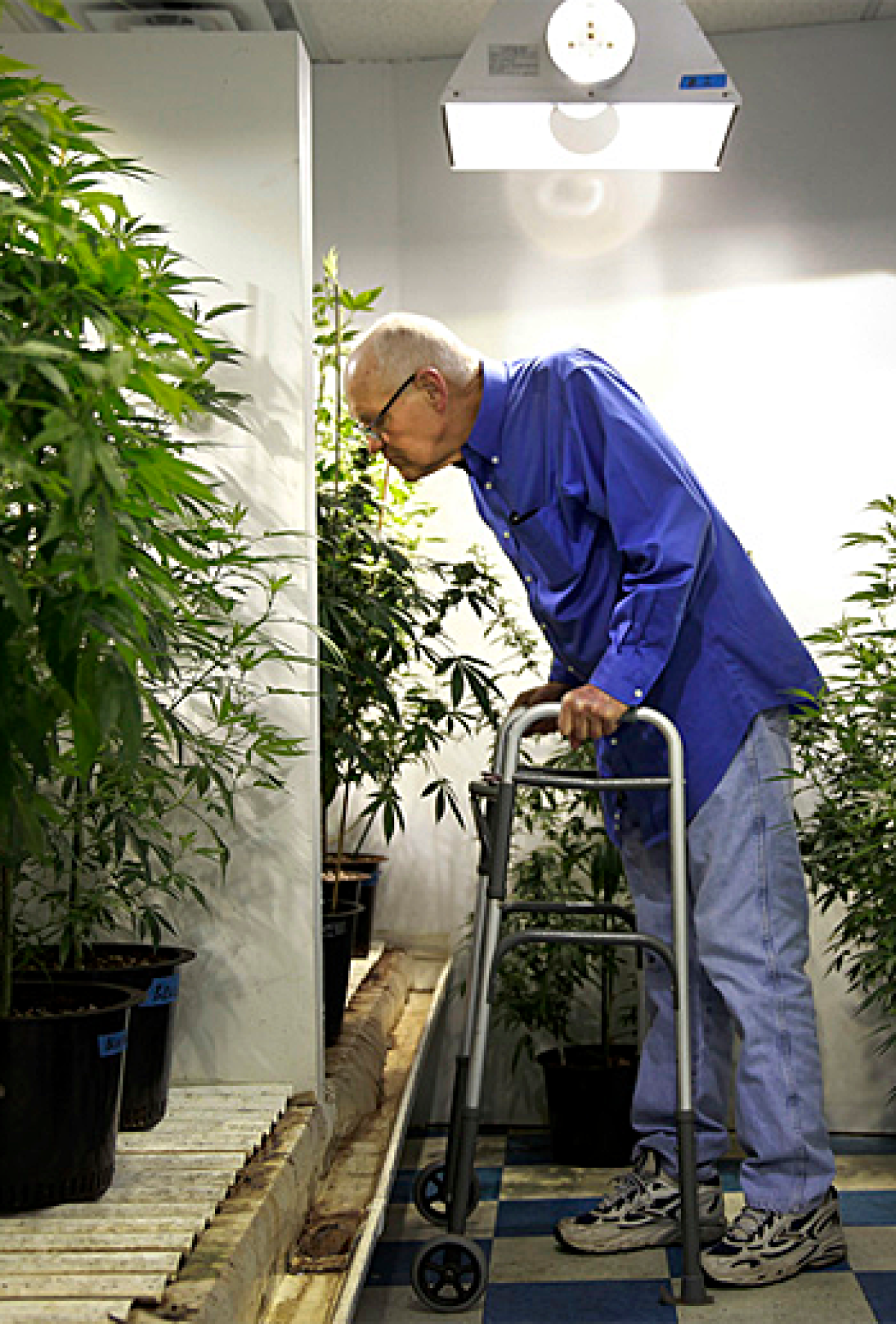
Bill Rosendahl tours the premises of Herbalcure, a medicinal marijuana collective, in Los Angeles in February. Rosendahl is a supporter of medicinal marijuana and uses it as part of his cancer treatment. (Jay L. Clendenin / Los Angeles Times) More photos
After a stint in the Army counseling soldiers returning from the Vietnam War, he returned to politics. He worked on Eugene McCarthy's presidential campaign and when that failed, he took off for 18 months, traveling through Europe, the Middle East, Africa and South America.
He was searching for something.
For years, Rosendahl had been living a double life as Michael Stone — the name he used in gay bars.
"You'd get into the bar and it was like going to heaven," he said. But he felt in tumult because the Catholic Church deemed his lifestyle a sin. He dreamed of running for political office but felt he couldn't with the secret he held. Sometimes he'd buy vodka on a Friday night, drink the whole bottle and wake up Monday not remembering anything.
"I was self-loathing," he said. "I was doing myself in."
That changed in 1977.
He flew to Florida to visit his mother in the hospital. He sat in the back of the room so she couldn't smell the alcohol on his breath. She looked at him, smiled and said: "Billy, don't worry. I'll pray for you."
Those were her last words to him, and he interpreted them as a blessing. When the next day his sister asked him suddenly, "Are you gay?" he said yes.
"I just completely let go," he said.
After the funeral, he moved to San Francisco and the hub of America's emerging gay culture. Halfway through a self-realization workshop for lesbians and gays, it hit him: "It's not me who's a bad guy, it's this insanity telling us we're bad."

In the late 1970s he moved south for the sunshine. In a Venice Beach apartment six doors from the ocean, he built an aviary in the sun room and filled the house with a mix of friends from politics and the boardwalk.
"He would go to the beach and invariably he would come back with some poor souls who didn't have a home," said Masard-Lindner, who lived next door to Rosendahl at the time. When the couple that stayed in Rosendahl's closet had a child, they named him William, she said.
While some friends have complained that he is treated like "the Bank of Rosendahl," he says he gets strength from helping others. Over the years, he's helped put a nephew through college and has paid for friends' vacations. He has financially supported a struggling acquaintance from high school for decades.
Having so many people around has kept him from getting lonely, especially after his partner of 14 years, Christopher Lee Blauman, died of AIDS in 1995. The Christmas tree they planted in the frontyard shortly before his death has grown into a towering fir.
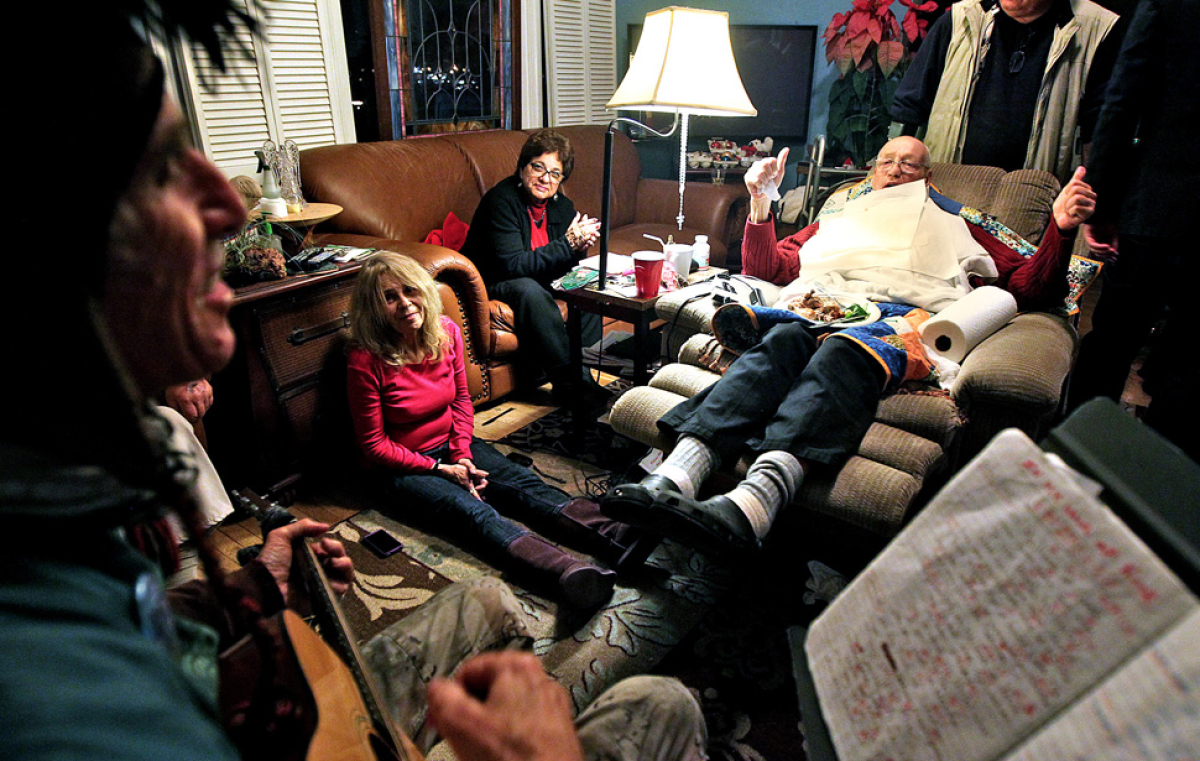
Bill Rosendahl, right, listens as Venice street performer Jingles, left, sings at the councilman's home in Mar Vista during a party marking the so-called Mayan apocalypse in December. (Christina House / For The Times) More photos
For the last 17 years, Rosendahl has been in a relationship with Hedi el Kholti, an editor who runs a highbrow publishing house called Semiotext(e). El Kholti, who lives in a quiet house in Highland Park, rarely ventures into Rosendahl's world of politics.
Since he was diagnosed, Rosendahl hasn't been able to drive or shop for groceries, and he's had to schedule more meetings in Mar Vista, inviting Congress members and constituents to sort out their problems in his living room.
He's happy at home. He's got a beehive for honey and has a yard full of free-range chickens, whose eggs he packs into recycled cartons to hand out to friends, city officials and constituents.
While he obtains most of his medical cannabis from dispensaries, he also grows a small marijuana plant on the balcony outside his bedroom, where a statuette of Jesus nailed to the cross is the only thing that hangs on the pale blue wall behind his bed.
One night last winter, Rosendahl and Swami held a party celebrating the so-called Mayan apocalypse. The shoulder-to-shoulder crowd included writers and poets, doctors and lawyers. Jingles, a favorite Venice Beach performer, was there. So was Mayor Antonio Villaraigosa, who remembered Swami from his student days.
They drank wine and sang folk tunes. A cake shaped vaguely like a Mayan temple was carried out. "Fantastico, fantastico," Rosendahl said.
"It's the end of negativity, and now we turn to the era of positivity," a guest shouted.
Rosendahl beamed.
Follow Kate Linthicum (@katelinthicum) on Twitter
More great reads
Auction sends wild horses to sanctuary — or slaughter
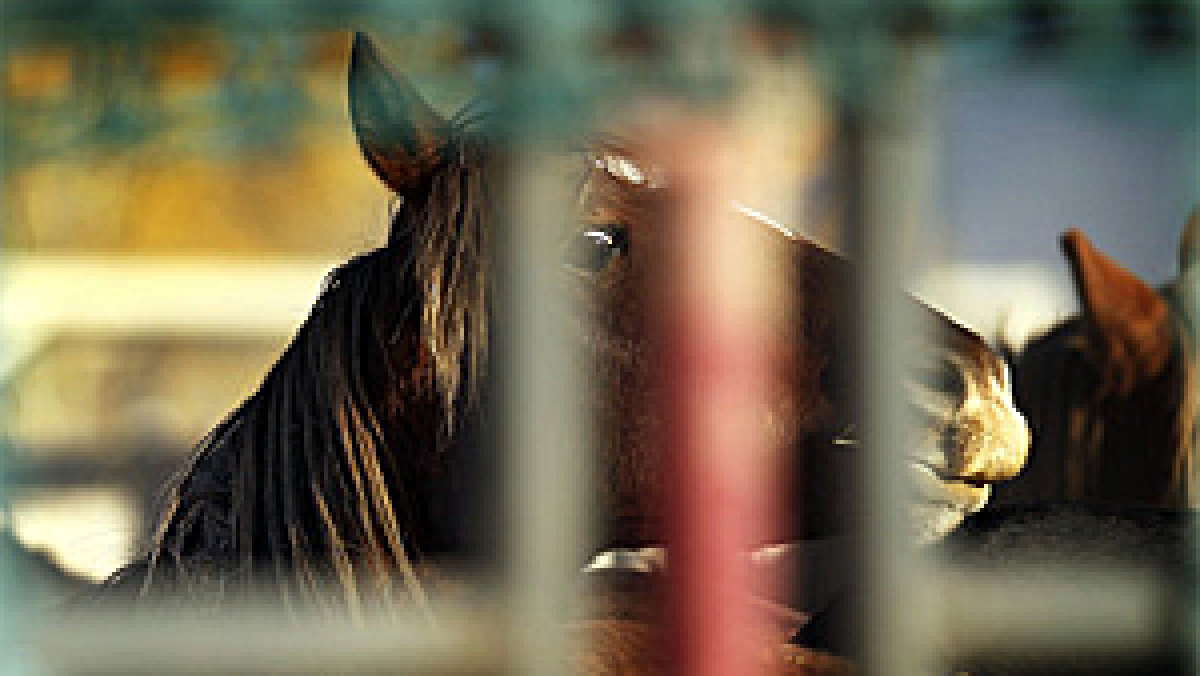
The agency removes horses, but you don't see them taking cattle off the range."
Old guard, young blood clash in Salinas' halls of power
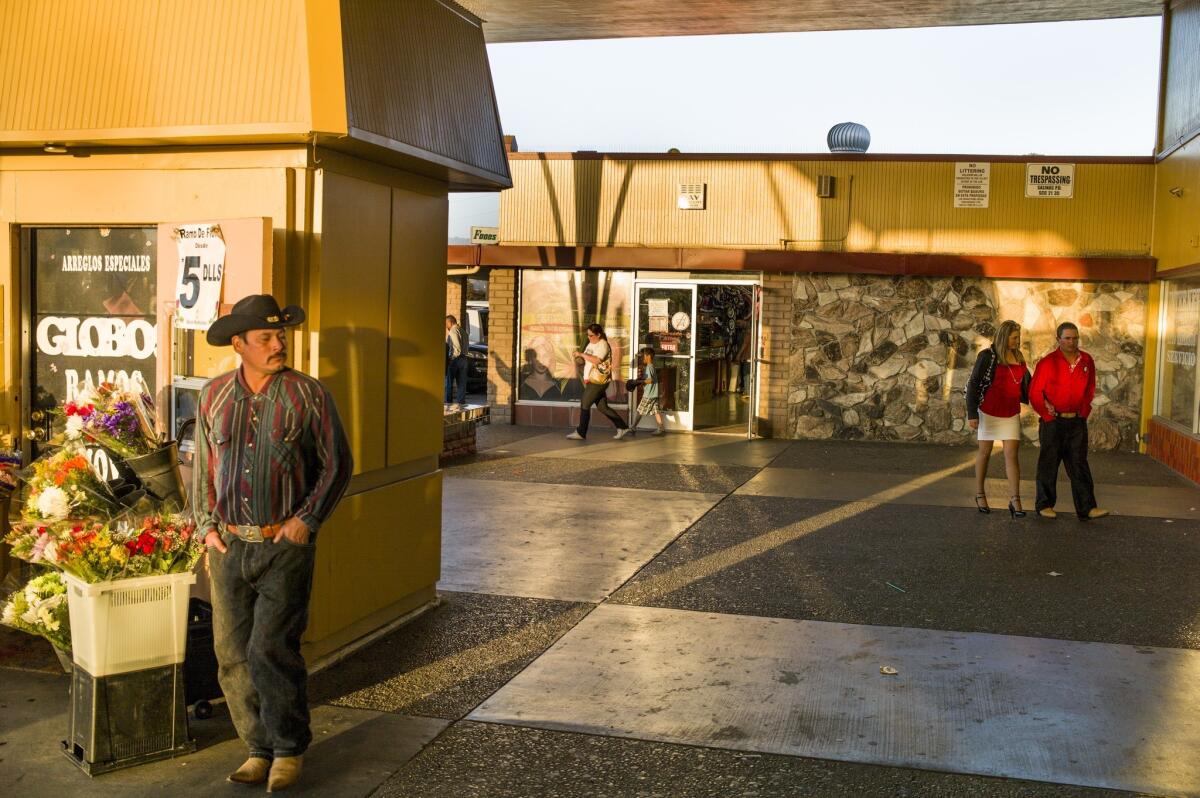
There were bad things done in Salinas in the past, and we haven't healed from that."
Sign up for Essential California
The most important California stories and recommendations in your inbox every morning.
You may occasionally receive promotional content from the Los Angeles Times.

